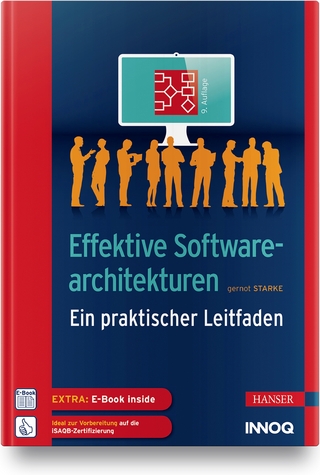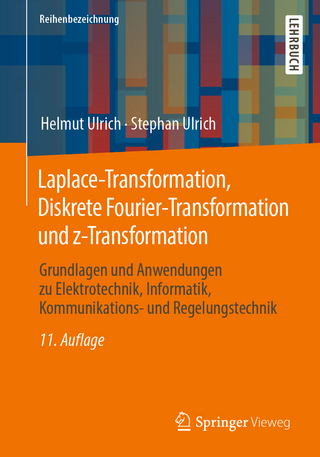Decoding of Block and Convolutional Codes in Rank Metric
Seiten
- Keine Verlagsinformationen verfügbar
- Artikel merken
Rank-metric codes recently attract a lot of attention due to their possible application to network coding, cryptography, space-time coding and distributed storage. An optimal-cardinality algebraic code construction in rank metric was introduced some decades ago by Delsarte, Gabidulin and Roth. This Reed–Solomon-like code class is based on the evaluation of linearized polynomials and is nowadays called Gabidulin codes.
This dissertation considers block and convolutional codes in rank metric with the objective of designing and investigating efficient decoding algorithms for both code classes.
After giving a brief introduction to codes in rank metric and their properties, we first derive sub-quadratic-time algorithms for operations with linearized polynomials and state a new bounded minimum distance decoding algorithm for Gabidulin codes. This algorithm directly outputs the linearized evaluation polynomial of the estimated codeword by means of the (fast) linearized Euclidean algorithm.
Second, we present a new interpolation-based algorithm for unique and (not necessarily polynomialtime) list decoding of interleaved Gabidulin codes. The unique decoding algorithm recovers most error patterns of rank greater than half the minimum rank distance by efficiently solving two linear systems of equations. The list decoding algorithm guarantees to return all codewords up to a certain radius.
As a third topic, we investigate the possibilities of polynomial-time list decoding of rank-metric codes in general and Gabidulin codes in particular. For this purpose, we derive three bounds on the lis size. These bounds show that the behavior of the list size for both, Gabidulin and rank-metric block codes in general, is significantly different from the behavior of Reed–Solomon codes and block codes in Hamming metric, respectively. The bounds imply, amongst others, that there exists no polynomia upper bound on the list size in rank metric as the Johnson bound in Hamming metric, which depends only on the length and the minimum rank distance of the code.
Finally, we introduce a special class of convolutional codes in rank metric and propose an efficient decoding algorithm for these codes. These convolutional codes are (partial) unit memory codes, built upon rank-metric block codes. This structure is crucial in the decoding process since we exploit the efficient decoders of the underlying block codes in order to decode the convolutional code.
This dissertation considers block and convolutional codes in rank metric with the objective of designing and investigating efficient decoding algorithms for both code classes.
After giving a brief introduction to codes in rank metric and their properties, we first derive sub-quadratic-time algorithms for operations with linearized polynomials and state a new bounded minimum distance decoding algorithm for Gabidulin codes. This algorithm directly outputs the linearized evaluation polynomial of the estimated codeword by means of the (fast) linearized Euclidean algorithm.
Second, we present a new interpolation-based algorithm for unique and (not necessarily polynomialtime) list decoding of interleaved Gabidulin codes. The unique decoding algorithm recovers most error patterns of rank greater than half the minimum rank distance by efficiently solving two linear systems of equations. The list decoding algorithm guarantees to return all codewords up to a certain radius.
As a third topic, we investigate the possibilities of polynomial-time list decoding of rank-metric codes in general and Gabidulin codes in particular. For this purpose, we derive three bounds on the lis size. These bounds show that the behavior of the list size for both, Gabidulin and rank-metric block codes in general, is significantly different from the behavior of Reed–Solomon codes and block codes in Hamming metric, respectively. The bounds imply, amongst others, that there exists no polynomia upper bound on the list size in rank metric as the Johnson bound in Hamming metric, which depends only on the length and the minimum rank distance of the code.
Finally, we introduce a special class of convolutional codes in rank metric and propose an efficient decoding algorithm for these codes. These convolutional codes are (partial) unit memory codes, built upon rank-metric block codes. This structure is crucial in the decoding process since we exploit the efficient decoders of the underlying block codes in order to decode the convolutional code.
| Erscheint lt. Verlag | 27.2.2014 |
|---|---|
| Reihe/Serie | Berichte aus der Informationstechnik |
| Sprache | englisch |
| Maße | 148 x 210 mm |
| Gewicht | 228 g |
| Einbandart | Paperback |
| Themenwelt | Mathematik / Informatik ► Informatik |
| Technik ► Elektrotechnik / Energietechnik | |
| Schlagworte | convolutional codes • Informationstechnik • Rank Metric |
| ISBN-10 | 3-8440-2610-X / 384402610X |
| ISBN-13 | 978-3-8440-2610-8 / 9783844026108 |
| Zustand | Neuware |
| Haben Sie eine Frage zum Produkt? |
Mehr entdecken
aus dem Bereich
aus dem Bereich
Ein praktischer Leitfaden
Buch (2020)
Hanser, Carl (Verlag)
CHF 69,95
den digitalen Office-Notizblock effizient nutzen für PC, Tablet und …
Buch | Softcover (2023)
Markt + Technik Verlag
CHF 13,90
Buch | Softcover (2022)
Springer Vieweg (Verlag)
CHF 55,95




